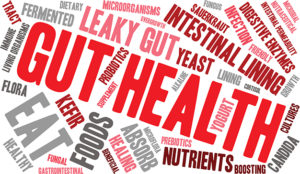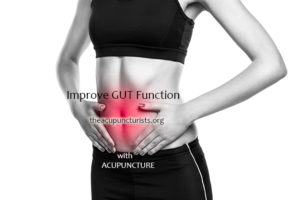
The digestive system is a sophisticated and broad set of connected organs responsible for breaking down food particles, ejecting wastes and nourishing the body. Components or organs making up the digestive system include the gastrointestinal tract that starts from the mouth all the way to the anus, pancreas, gallbladder as well as liver. The digestive system works unceasingly all day long to help attain and sustain optimal energy levels. However, it is also susceptible to a wide variety of illnesses and conditions.
Digestive disorders account for significant morbidity, mortality as well as costs. More than 70 million Americans (about 22% of the country’s population) suffer from digestive conditions every year. In 2004 alone, more than 4.5 million sufferers of digestive illnesses were hospitalized. In the same year, there were 72 million ambulatory care calls for digestive conditions and nearly 240,000 deaths were linked to these ailments. These numbers are largely due to the harmful repercussions of the standard American diet on our population coupled with the high level of stress that the average American experiences.
What is a Digestive Illness?

A digestive illness, digestive disorder or digestive condition is any ailment that affects the gastrointestinal tract. There’s a wide spectrum of digestive illnesses and they come with varying degree of severity, from slight unwanted irritation (for example a mild heartburn) to incapacitating and lethal diseases (like perforated ulcers). While some digestive diseases are acute and last only a short period, others are chronic or long-term.
Most digestion problems respond very well to acupuncture and herbal treatment. Making dietary changes that restore and detoxify the gut also enhances treatment progress. Digestion is one of the main reference points for gauging one’s overall health. If there are weaknesses or imbalances here, it is likely that one’s overall health is compromised.
Maintaining healthy digestion is an essential component in our quest for optimal health. If digestion is weak, it will lead to a myriad of unwanted symptoms that decrease one’s quality of life. We understand how frustrating and disruptive digestive problems can be. The good news is that we have successfully treated, with acupuncture and herbs, many of our patients suffering from digestion problems.
“The acupuncturists here at Care are wonderful. Without there help and guidance I wouldn’t have discovered my hidden food allergies and sensitivities that contributed to IBS and weight gain. 4 months later after beginning treatment I can honsetly say that I got my life back. I lost weight (almost 50 pounds), I regained the energy that I once had, and my digestion has improved dramatically. I have recommended Landon and Robert to many of my friends and colleagues and will continue to do so.” ~ Barbara F. – Ft. Lauderdale, Florida
We want to help you too! Our beautiful wellness center in Margate is just minutes from Coral Springs and Coconut Creek. Consultations are free and we are in network with many insurance plans. Call us today at 954-586-CARE (2273) to verify your coverage.
Let’s take a look at a few of the common digestive issues that we treat in our clinic …
Acid reflux – Acid reflux happens when stomach acid leaks back to the esophagus. It is usually characterized by heartburn, dry cough, nausea, bloating and blood spots in stool or bloody vomit. When left unchecked, this ailment is bound to become a more severe and deadly digestive condition like hernia, gastrointestinal bleeding or cancer of the esophagus. Inflammatory bowel disease
Inflammatory bowel disease – or IBD results from inflammation along the gastrointestinal tract. Depending on the place where the inflammation occurs, this illness can be referred to as ulcerative colitis or Crohn’s disease. Symptoms include abdominal ache, cramps, rectal bleeding, diarrhea, vomiting as well as weight loss. When not properly treated, the inflammation can cause dangerous injury to the gastrointestinal tract.
Irritable Bowel Syndrome – IBS is a very common problem that affects millions of Americans. Doctors will often diagnose IBS or irritable bowel syndrome when the patient’s symptoms don’t seem to match up with anything else, so they call it irritable bowel. This disorder is characterized by bowels fluctuating from constipation to diarrhea with intermittent abdominal pain or distention. People with IBS tend to be sensitive to a variety of foods including high fiber foods, refined sugar, wheat, and gluten products. Symptoms can continue indefinitely and can be resistant to conventional treatments.
Related – learn about Chinese Herbal Medicine for IBS
Leaky Gut Syndrome – The gut is naturally permeable to nutrients (sugars, amino acids, and fatty acids) and macronutrients (antioxidants, vitamins, minerals) so that you can get your nutrition from your food. However, when your gut barrier and microbiome get weakened from chronic exposure to foods and medications that irritate your gut, or when the good bacteria get out of balance from antibiotics, these tight junctions develop gaps, and you can develop a leaky gut, or leaky gut syndrome (LGS). When this happens, things that aren’t supposed to get into the blood stream are getting in like fragments of protein and bacteria. Your body recognizes these as foreign invaders and responds with an immune reaction. Symptoms can include food intolerances, allergies, eczema, anxiety, depression, joint pain and chronic fatigue.
SIBO – (small intestine bacterial overgrowth) – is defined as the presence of excessive bacteria in the small intestine and is frequently the cause of chronic diarrhea and malabsorption. People with SIBO usually suffer from undesirable weight loss, digestive disturbance, nutritional deficits , and .also osteoporosis.
Candida Albicans – Everyone has some level of Candida in their intestines as it usually cohabitates with other bacteria and yeasts. However, Candida can get out of control due to a number of factors and unfortunately can take over your gut. This is an opportunistic fungus, or yeast, that can bring on a multitude of unfavorable symptoms including bloating, fatigue, anxiety, skin eruptions, mood disorders, weight gain, joint pain, and gas. Read about the candida diet.
H. Pylori infection – the leading cause of stomach ulcers. When H. pylori enters your body it breaks down the lining of your stomach that protects you from the acid your body uses to digest food. As the bacteria does more damage, the acid can penetrate the stomach lining. This leads to ulcers may bleed, cause infection, or prevent food from passing through your digestive tract.
Constipation – The standard American diet can easily lead to chronic constipation. This diet is low in fiber and antioxidants and high in difficult to digest additives and refined ingredients. Many, many people are constipated and they don’t even know it. They may have regular bowel movements, but they are still not flushing their systems thoroughly, which creates intestinal toxicity. Intestinal cleansing is often a top priority in healing numerous chronic health problems. Acupuncture works very well for constipation and in just a few treatments. There are also several natural herbal remedies and nutritional supplements that can relieve constipation and heal the underlying imbalances.
Diarrhea – Chronic diarrhea can be dangerous for your health. It is still one of the leading causes of death in the world. Diarrhea is related to spleen weakness or intestinal inflammation. It is always a top treatment priority to heal this condition. Stress and anxiety can trigger regular bouts of diarrhea, as can processed and refined foods. Acupuncture and Chinese herbs work very effectively to regulate bowel movements and eliminate diarrhea.
Peptic ulcer disease – or PUD is the commonest ulcer plaguing the gastrointestinal tract. It occurs when tissues are damaged by digestive enzymes. While symptoms of PUD may not always show, some noticeable ones include vomiting, weight loss, blood spots in stool, nausea, abdominal pain and bloody vomit.
Digestive tract cancers – Cancers affecting the gastrointestinal tract comprise of stomach/gastric cancer, pancreatic cancer, liver cancer, anal cancer, cancer of the esophagus, cancer of the gallbladder and more. These cancers are dangerous and have many symptoms in common such as abdominal ache, indigestion, weight loss, fatigue and gastrointestinal bleeding.
Parasitic Infections – It is estimated that as many as 50% of Americans have a parasite and in those with chronic health issues and diseases it’s as much as 80%. Fatigue, regular gut and stomach pains, chills and fever, loss of appetite, chronic or cyclical diarrhea, gastroparesis, eye health issues, chronic skin eruptions, and anxiety are good indicators that testing for a parasitic infection should be considered. In the cases of irritable bowel syndromes, irritable bowel diseases, autoimmunity, and environmental and food allergies then testing should absolutely be done.
What medications are available for Digestive Illness?
Drugs are usually administered to eliminate symptoms of digestive illnesses as well as treat specific diseases. Most of the drugs for digestive diseases can be accessed over the counter. However, many oral drugs for treating digestive diseases affect the very same digestive system in one way or the other. These include medicines prescribed by a doctor and over-the-counter medications. Some of these medicines cause irritation to the esophagus and stomach.
When one is suffering from gastrointestinal conditions, drugs can worsen the symptoms in many cases. NSAIDs are known to cause cancers of the duodenum and stomach. Some drugs for treating digestive diseases are so ineffective that they’re likely to worsen if not cause colonic ulcers and inflammations.
Surgery is at times recommended for treating severe cases of digestive disorders. However, alternative treatment like acupuncture should always be explored before opting for surgical operations as it can save the sufferer from undergoing the knife. Indeed, many people have escaped surgery by going for oriental medicine in treating digestive diseases. Cases of severe and chronic digestive disorders that hardly respond to common drugs have been healed through acupuncture and Chinese Medicine.
Why is acupuncture an effective alternative treatment for digestive illnesses?

Traditional Chinese Medicine (TCM) has been practiced for 3,000 years and has documented the metabolic changes that occur in the body including energy production. Energy is produced through the food we eat and the air we breathe according to TCM. Indeed, the digestive system forms a key part of Oriental medicine from its early days. Scholars and ancient practitioners of TCM thoroughly researched and understood both the processes through which our bodies derive energy. As such, nearly all digestive diseases – including the chronic and severe cases – can be addressed by Traditional Chinese Medicine and acupuncture.
Lately, TCM, acupuncture to be more specific, has gained massive popularity and endorsement even in the Western medicine circles due to its effectiveness in relieving a wide variety of pains. Acupuncture is indeed highly effective in treating digestive diseases because it addresses the root cause of the problem. A 1997 report by America’s National Institutes of Health endorsed acupuncture as a safe and efficient alternative treatment for wide range of diseases and conditions including digestive disorders. Consequently, acupuncture is actually covered by many health insurance policies and doctors worldwide recommend it for relieving pain. Indeed, acupuncture is championed by many recent studies as the best treatment for digestive conditions. This is because unlike common drugs used in treating digestive illnesses, acupuncture yields no side effects and also has a significantly greater efficacy.
At our wellness center in Margate Florida we address digestive conditions with acupuncture, Chinese herbs and sound nutritional guidance. We are confident that we can help you overcome the digestive disturbances we have outlined in this article. Call us today to schedule a free consultation and learn more about our programs.
Read more about Digestive health in our section on Nutrition & Lifestyle. Learn more about how acupuncture works at the Frequently Asked Questions about acupuncture section.
References
Diehl, D. L. (1999). Acupuncture for gastrointestinal and hepatobiliary disorders. The Journal of Alternative and Complementary Medicine, 5(1), 27-45.
Kaptchuk, T. J. (2002). Acupuncture: theory, efficacy, and practice. Annals of internal medicine, 136(5), 374-383.
Schneider, A., Enck, P., Streitberger, K., Weiland, C., Bagheri, S., Witte, S., … & Zipfel, S. (2006). Acupuncture treatment in irritable bowel syndrome. Gut, 55(5), 649-654.
Takahashi, T. (2006). Acupuncture for functional gastrointestinal disorders. Journal of gastroenterology, 41(5), 408-417.
Ulett, G. A., Han, J., & Han, S. (1998). Traditional and evidence-based acupuncture. J uth Med J, 91(12), 115.
Vickers, A., Cassileth, B., Ernst, E., Fisher, P., Goldman, P., Jonas, W., … & Silagy, C. (1997). How should we research unconventional therapies? A panel report from the Conference on Complementary and Alternative Medicine Research Methodology, National Institutes of Health. International journal of technology assessment in health care, 13(01), 111-121.
Yin, J., & Chen, J. D. (2010). Gastrointestinal motility disorders and acupuncture. Autonomic Neuroscience, 157(1), 31-37.
